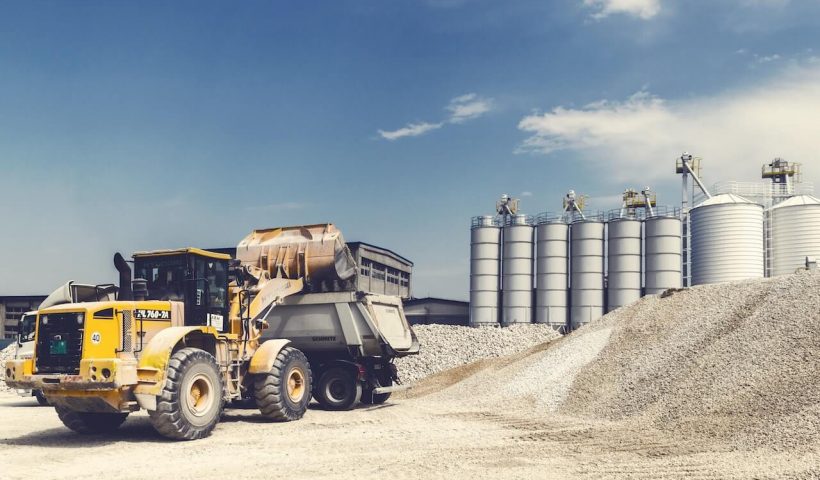What is Annual Investment Allowance?

What Is Annual Investment Allowance?
An Annual Investment Allowance (AIA) is tax relief for businesses that want to purchase assets that will last more than 12 months. The Annual Investment Allowance allows businesses to deduct some or all of the value of the qualifying purchases from their profits before they pay tax.
The types of assets that qualify are known as ‘plant and machinery’, and it’s always best to know exactly which assets qualify for Annual Investment Allowance before you invest in a purchase.
For all things AIA, we’ve got you covered. Some of these terms may be new or unfamiliar to you, and we get it, accounting can be a confusing topic. That’s why we’ve put together this article to help you make sense of Annual Investment Allowance.
If you’re a business owner looking for someone to guide you through the logistics and legalities of running your business, our experienced team of Oxford-based bookkeepers and accountants offers practical advice on important subjects such as Annual Investment Allowance, tax, VAT, etc.
Get in touch with our Oxford accounting office and let’s have a chat!
Who can claim Annual Investment Allowance?
Annual Investment Allowance can be claimed by limited companies as well as by sole traders. Partnerships are also entitled to claim AIA, as long as they’re individuals. If you’re a sole trader or a member of a business partnership, each individual business is allowed its own allowance, unless the businesses are operating on the same premises and are conducting similar business activities, and in cases where the same person controls those businesses. The same rule applies if the same person controls two or more limited companies, the companies are only entitled to one AIA claim between them.
Capital vs Revenue Expenditure
When talking about Annual Investment Allowance it’s important to mention capital and revenue expenditure as the allowance can be claimed only on capital expenditure. Capital expenditure is a term used to describe any investment made in fixed assets. Revenue expenditures refer to expenses that relate directly to revenue transactions or operating periods such as the cost of goods sold or repairs and maintenance expenses.
You can also think about capital allowances in terms of the costs associated with purchasing property or equipment for your business, such as a warehouse, computers, and machinery. Whereas revenue expenditures are things like utilities and rent, employee wages, business travel expenses, etc.
The accounting support you need
Looking for professional accounting services?
Check out our accounting and bookkeeping packages.
What You Can And Can't Claim Annual Investment Allowance On
You can make a claim for AIA on most plant and machinery assets that are for your business.
You cannot claim Annual Investment Allowance on:
❌Business cars
❌Items you owned for another reason before you started using them in your business
❌Items that are given to you or your business
How to claim Annual Investment Allowance
You will claim for Annual Investment Allowance via your tax return. Check out our article “How To Prepare And Submit Your Self-Assessment Tax Return” or if you’re a limited company “Tax and Filing Guide For Limited Companies“.
If you want to claim the full value of the asset, you need to complete your claim within the accounting period you bought the item. If you don’t want to claim the full value of the asset, you can claim part of the value using what’s called ‘writing down allowances‘. You can do this at any time providing you still own the item.
Writing down allowances lets you deduct a percentage of the value of an asset from your annual profits, and you can use writing down allowances if:
➡️You’ve already claimed the full limit of AIA
➡️The item does not qualify for AIA (for example, cars, gifts, or things you owned before you used them in your business)
If you bought an item under a hire purchase contract, you can make a claim on the payments you have not made yet when you start using the item, but it’s important to note that you can’t claim for the interest created on the payments.
When it comes to dates, the date you bought the item is defined as either when the payment is due (if it’s due more than 4 months later) or when you signed the contract.
The AIA is a great way to help businesses invest in new or improved equipment, machinery, and other capital items.
If you have any questions about Annual Investment Allowance, or if you want someone with experience in this area to handle everything for you, book a call with us and let’s see how we can support your business. Our accountants from Oxford can guide you through the steps of how to raise a VAT invoice, advise you on all aspects of running your business, including how tax works, and make sure that everything is done correctly going forward.

Your Accountant in Oxford
Oxford Office
Joanna Bookkeeping
The Wheelhouse Angel Court
First Floor, Angel Court
81 St Clements St
Oxford
OX4 1AW
Connect
joanna@joannabookkeeping.co.uk
01865 591952





